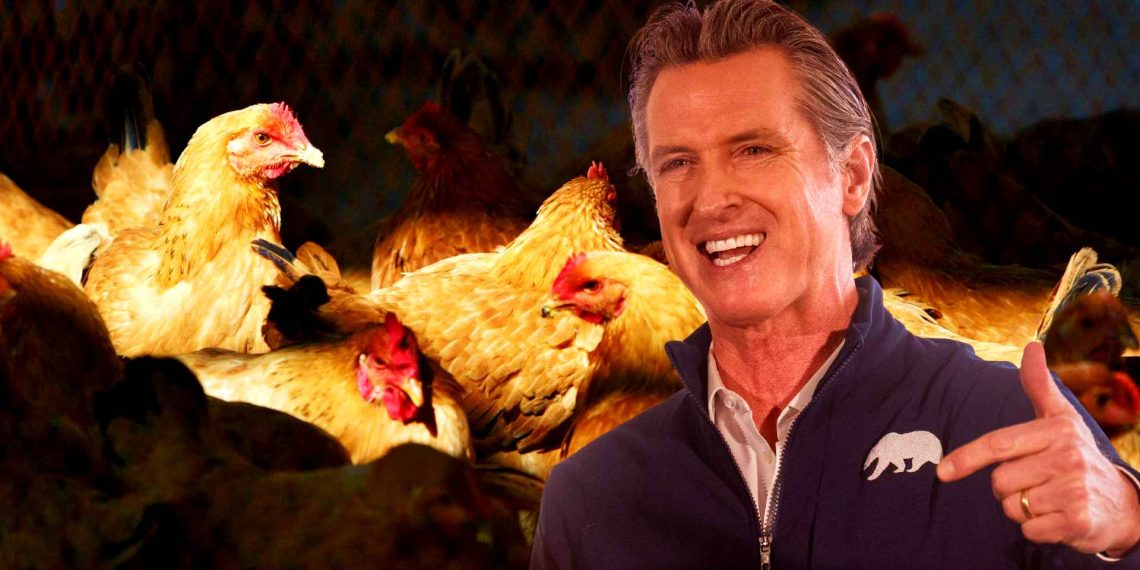For the last four years, we’ve been seeing the foundation being laid for another Plandemic. It’s unclear whether other diseases such as Monkeypox were test balloons for possible Plandemic candidates or if they were simply diversions, but it seems very likely that Bird Flu is part of the plan.
And it doesn’t have to be just one. We might see more variations of “Disease X” pop up to really strike fear in the hearts of the indoctrinated. But Bird Flu is at least the first major play the Globalist Elite Cabal is making in the post-Covid world. We have seen far too many inexplicable reactions and unhinged fearmongering tactics deployed for us to dismiss it. I talked about it on today’s episode of The JD Rucker Show.
Plandemic 2.0?
"Bird Flu 'Emergency' Is Part of the Foundation for the Next Plandemic" pic.twitter.com/pMEk6KBzyS
— JD Rucker (@JDRucker) December 20, 2024
Here are the facts from Tyler Durden at Zero Hedge:
Does California’s Bird Flu Emergency Portend the Next Trump-Era Outbreak?
This week California Governor Gavin Newsom (D) declared a state of emergency over avian influenza, aka Bird Flu.
And while Newsom says the order was simply a precaution after one person in Louisiana was hospitalized with the first severe illness caused by the bird flu in the United States, one has to wonder – WTF…
“This proclamation is a targeted action to ensure government agencies have the resources and flexibility they need to respond quickly to this outbreak,” Newsom said in a Wednesday statement.
According to the governor’s office, Bird flu has been found in dairy cows in Southern California – therefore, the emergency is needed to “contain and mitigate the spread of the virus” despite the fact that there have been no reported cases of person-to-person transmission in the state.
What makes this extra-interesting is a tidbit at the end of the new documentary, Thank You Dr. Fauci – notably an infamous op-ed penned by Fauci and his former ‘boss’, NIH head Dr. Francis Collins, in which they suggested that their dangerous research was a “risk worth taking.”
Fauci and Collins penned infamous op-ed for @washingtonpost claiming this dangerous research could cause a pandemic but it was a "Flu Risk Worth Taking" See past
from @Bryce_Nickels https://t.co/rq4tfVzQXP and continue this
for more…
— Thank You Dr Fauci (@ThankYouDrFauci) December 19, 2024
Which brings us back to California – where the new emergency declaration will empower state and local agencies with additional funding and flexibility in dealing with the virus, that nobody in the state has caught… yet.
As the Epoch Times notes further, While not linked to human bird flu cases, a raw milk dairy based in California issued a voluntary recall several weeks ago after avian influenza was found in a lot.
All of the illnesses in the United States, except for the Louisiana case, have been mild, and the vast majority have been among farmworkers exposed to sick poultry or dairy cows. This year, more than 60 bird flu infections have been reported, with more than half of them in California, according to the U.S. Centers for Disease Control and Prevention (CDC).
In the Louisiana case, the infected person is older than 65, has underlying medical problems, and has also been in contact with sick and dead birds in a backyard flock, according to the CDC.
Last month, Canadian officials reported that a teen in British Columbia was hospitalized with a severe case of bird flu. CDC officials did not answer a question about whether the new U.S. case and the case in Canada had any similarities or differences, directing reporters to ask Louisiana officials.
Health officials say bird flu is still mainly an animal health issue and that the risk to the general public remains low. There has been no documented spread of the virus from person to person in the United States or elsewhere.
- Gold SKYROCKETED during Trump’s first term and is poised to do it again. Find out how Genesis Precious Metals can help you secure your retirement with a proper self-directed IRA backed by physical precious metals.



